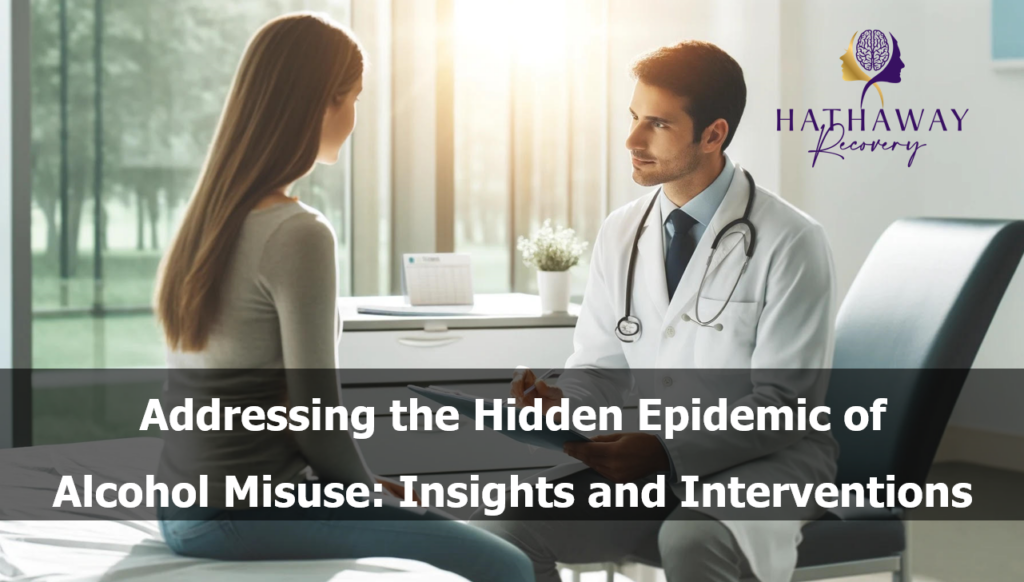Alongside the well-documented opioid crisis, the United States is grappling with another, often overlooked, epidemic: excessive alcohol use. Each year, alcohol-related deaths surpass those from opioids and other drugs. Even before the COVID-19 pandemic, rates of heavy drinking were rising, and the pandemic’s stress and isolation exacerbated this issue, leading to a 25% increase in alcohol-related deaths from 2019 to 2020. In 2020, alcohol-related deaths among adults under 65 outnumbered those from COVID-19.

The ramifications of excessive drinking extend far beyond individual health, contributing to car accidents, increased violence, risky sexual behavior, job loss, family breakdowns, and instability in children’s lives. Alcohol is a very cheap, widely available, and socially acceptable drug. Despite the scale of the problem, efforts to address alcohol misuse often seem inadequate. However, researchers are making strides in identifying those at risk for alcohol use disorder (AUD) and developing new prevention strategies.
Cultural Shifts and Societal Impacts
Alcohol can be a cause of harm, but it’s also a barometer for other issues. Mental health in this country is in meltdown mode. Drinking often serves as a coping mechanism for those struggling with mental health issues, with alcohol-related deaths frequently stemming from a loss of hope.
Fortunately, recent trends indicate a decrease in alcohol use since the pandemic peak. However, where things were before the pandemic was not good. Approximately 29.5 million Americans have AUD, costing the country over $249 billion annually and resulting in 232 million missed workdays each year.
From 2015 to 2019, excessive alcohol consumption contributed to around 140,000 deaths annually among adults aged 20 to 64, including acute causes like car crashes and chronic conditions such as liver disease or cancer. Moreover, women and older adults have shown significant increases in alcohol consumption over recent decades, with older adults experiencing heightened drinking rates during the pandemic.
Understanding AUD: Causes and Consequences
AUD can vary in severity and is influenced by a combination of genetic and environmental factors. A significant portion of the risk is linked to trauma and adverse childhood experiences. About 50% of why some people are more likely to develop AUD is due to differences in their DNA.
Researchers are also exploring the impact of inhibitory control and other underlying factors. Among heavy-drinking women, there may be greater deficits in inhibition than men, possibly due to neural differences or hormonal factors.
Intervention and Prevention Strategies
Intervention programs target personality risk factors associated with substance use. Early interventions are crucial for addressing the underlying traits that predispose individuals to addiction. If you start early, you can address the driving factors that can lead to a trajectory of substance use.
Historically, substance use treatment focused on severe cases, but there’s a growing recognition of the need to address substance use on a continuum. Efforts are being made to shift perceptions and embrace harm reduction approaches. There are multiple things that can work for treating AUD, including psychological interventions such as cognitive behavioral therapy and motivational enhancement therapy.
The Role of Rehab: Treatment for Alcohol Abuse and Addiction
Most treatment programs for alcohol addiction begin with detoxification, the process of eliminating the alcohol from the body. This procedure should be done under the control of health professionals. Medically monitored detox programs keep an eye on someone’s vital signs while they go through withdrawal to ensure their safety.
Right after detox, treatment with therapy and possibly medication should follow. Treatment centers provide support in the form of individual therapy, group therapy, and educational classes, where patients can explore the reasons behind their excess alcohol consumption, as well as what they can do to overcome their abusive behavior.
Inpatient treatment allows patients to receive care in a structured, controlled environment. It’s very beneficial since the home environment often supports alcohol abuse in some way. The inpatient treatment plan is individualized and combines therapies, nutrition, and counseling for a well-balanced approach to recovery.
At Hathaway Recovery, we will ensure your safety during alcohol detox and treatment with 24/7 monitoring from an experienced staff of licensed professionals.
– On-site Detoxification Treatment
– Comfortable and Luxurious Quarters with Private Rooms
– Highly Experienced Medical Staff Available 24/7 – Non-Addictive Medication Offered
– Anti-seizure medication and frequent monitoring.
So, if you feel like going through alcohol detox is something that you need to get onto the road of sobriety, Hathaway Recovery is the best choice for you. Hathaway Recovery is an industry leader in Addiction & Dual Diagnosis Treatment. A doctor-operated facility that offers 24/7 care, monitoring & support. Hathaway Recovery has a team of professionals who constantly strive to offer the most innovative and effective care and therapy.
Contact Hathaway Recovery today for more information on dialectical behavior therapy (DBT) and addiction treatment.
By addressing these challenges and leveraging their expertise, treatment centers like Hathaway Recovery can significantly impact the fight against alcohol misuse, helping to reduce the stigma and improve treatment outcomes for those struggling with alcohol-related issues.
Choosing the right rehabilitation program is critical and should be tailored to the individual’s specific needs, the available therapeutic options, and the overall environment of the facility. Effective rehabilitation can profoundly alter lives, equipping individuals with the tools and strategies needed to manage their addiction and achieve a meaningful life.
Hathaway Recovery, recognized for its comprehensive and holistic approach to treatment, stands as a beacon of hope for those committed to overcoming their addictions and starting anew. For individuals ready to embark on a transformative journey, Hathaway Recovery’s Admissions Department provides a compassionate and structured pathway to recovery. They can be reached confidentially at (909) 971-3333.






